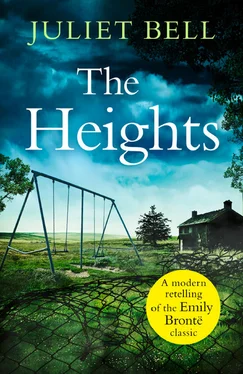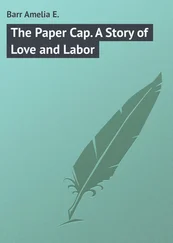The two groups of women took seats on opposite sides of the hall, eyeing each other cautiously, if not actually with hostility. At the front a tall man in a black shirt and tie was fiddling with a slide projector. Shirley sipped her tea.
One of the women from behind the tea counter came through, wiping her hands on her apron, and whispered something to the man at the front before clearing her throat. ‘Right then. Shall we start with a prayer? Erm… Reverend Price, would you like to lead us?’
There was a pause as the ladies popped their cups down on the floor and bent their heads. Shirley screwed her eyes tight closed. She always did when it was time to pray. Her mother’s voice warning her that the devil came for little girls who looked around still rang in her head. It was nonsense, of course, but the little bubble of darkness made her feel different somehow from the rest of the time, not so much closer to God as simply more distant from the drudgery of normal life.
The priest… no, not priest, vicar maybe? Shirley wasn’t sure. Anyway, whoever he was, he intoned deeply, ‘Let us pray…’
Shirley’s whole body tensed. That voice. It sounded familiar. It dragged her to a time and place a long time ago. 1963. A young girl had taken one stolen moment of excitement in a drab and boring existence. A lad with a teddy-boy quiff when everyone else was growing a mop top had shown her more about life than a single girl ought to know. Then run off and left her no choice but to marry a local lad before she started to show. Shirley screwed her eyes even tighter closed as she remembered her mother’s voice and her father’s fist. Her mother had said Shirley was lucky the Earnshaws hadn’t got wind of her associating with that wrong-un. Lucky Ray Earnshaw didn’t discover the truth until well after the wedding, when it was too late for him to do anything about it. Lucky that Ray valued his reputation enough to say nothing. And lucky he loved the daughter who was his enough to stay.
The voice, that voice that couldn’t possibly be him, was reaching the end of the prayer. ‘Through Jesus Christ our Lord. Amen.’
All around her the women muttered their amens. Shirley didn’t join in. She had to open her eyes, though. She had to break the little bubble that she’d created when she screwed them closed. It wouldn’t be him. It hadn’t been him when she thought she’d caught a glimpse of him that time they’d gone to Southport when Cathy was a baby. It hadn’t been him when she’d thought she’d seen him in the crowd on Match of the Day . She opened her eyes.
It wasn’t him.
Shirley sat through the whole talk with her handbag perched on her knee, twisting the strap round and round her fingers, trying to listen to what Reverend Price was saying. He was on about sending help to some place she’d never heard of in Africa. A corrupt government was leaving people to starve, the Reverend was saying, when Gloria suddenly shot to her feet.
‘What about our government leaving us to starve>’ Gloria declared. ‘Her. That Margaret Bloody Thatcher. She’ll have the pits closed and us all on the poor house the way she’s going.’
She was surrounded by murmurs of assent. Shirley didn’t bother listening to the churchman’s answer. She was with Gloria. Night after night she’d sit there while Ray went on and on about the state of things. About the unions and the strikes to come. About the need for brotherhood among the workers. Comrades, he called them. Like some bloody commie. And when he wasn’t on about that at home, he was off at some union meeting, leaving her to cope with three kids – one of which wasn’t even hers.
This wasn’t the life she had dreamt about as a girl. She’d been the pretty one. The one they said was going to make a fine match. To live the sort of life others only dreamt about, with a nice home and pretty clothes. And look at her now…
It was suddenly all too much. Shirley got to her feet and walked out of the hall, oblivious to the hubbub behind her. Those woman had been gossiping about her one way or another for most of her life. What did one more day matter?
Shirley didn’t use the shortcut across the stream. She was wearing her Sunday shoes so she walked all the way to the bridge, then turned back along the road to the Heights. She walked past the row of identical terraced houses. There were other women behind those doors, but none of them was her friend. They were, for the most part, tied down with hard work, a baby each year and trying to make ends meet on a miner’s pay.
And the hardest part to accept was that she wasn’t that much different to them.
She turned into Moor Lane and looked up at the house at the end of the terrace. Her steps faltered. There was nothing there calling her home.
She should have loved her firstborn son. Mick was the one thing linking her to those moments of stolen pleasure. But, truth be told, she didn’t love him. In a way, she hated him. If he hadn’t been growing inside her, she never would have married Ray Earnshaw. She certainly didn’t love Ray. Or the daughter she’d given birth to back in the days when she had accepted Ray pawing at her on a Friday night after he’d been down the pub with his mates. And as for that bastard boy – she could barely stand the sight of him.
It occurred to Shirley that maybe she didn’t really know what love was. But one thing she did know was that she had no love for this town, or that house, or any of the people who lived in it.
It made her wonder why she was wasting her life here. She paused. She told herself she could go down to St Mary’s and sit for a while, let the coolness and the quiet of the church calm her. But it wouldn’t work. Eighteen years since she’d had the baby that had tied her to this place and this husband for so long. Five years since Ray had brought that bastard home. She’d put up with more than anyone could expect. She wasn’t going to sit and think and pray and hope to feel better. She wasn’t going to clean and cook and do everything for everyone else.
Something inside her had been pulled taut for too long. And now it had snapped. The girl she’d been all those years ago was awakening inside her and screaming that it wasn’t too late. What Shirley Earnshaw was going to do, was walk back into that cold little house, put her things in a suitcase, get the post-office book Ray knew nothing about from her knicker drawer, and walk away.
Mick pushed his giro cheque over the counter. This was the life – getting paid for doing nothing. It wasn’t much money, but it was more than he’d had before. And it beat working. He was free to do as he pleased. He stuffed the book and money into his pocket and sauntered out into the street. Davo and Spud were leaning on the railings outside the post office. The trio fell into step.
Spud dropped his fag butt to the ground. ‘We getting some beers now then?’
Davo laughed. ‘He’ll have to hand it all over to his dad, won’t he?’
Mick shook his head. ‘No way. I do what I like with what’s mine.’
That was a lie, but he wasn’t letting on. His dad had this idea that now Mick had left school he ought to be paying rent, but that was crap. He couldn’t pay rent because he hadn’t got a job. His dad had plenty to say about that too, but would he help him get one? Not bloody likely. His dad was a supervisor down the pit now. He was a big man. He could’ve got Mick a job if he’d wanted. But no. He said it was up to Mick to make his own way. What was he supposed to do? There weren’t any jobs going outside the pit. At least not for the likes of Mick.
He led the way to the Spar across the road, and picked up a pack of cans. A few years ago, they might have gone to the youth club. But that was closed now. And besides, they weren’t kids any more. They could go to the pub. Spud was still a couple of months short of his eighteenth, but nobody would say anything. Not at the Red Lion. Trouble was, the Lion would be full of his dad’s mates. They’d all be talking about Maggie Thatcher and Arthur Scargill, and the mine and the union and the government. That was all anyone ever talked about. The pit was all that mattered. Some had already closed, and there was talk that they were going to close even more. But the Gimmerton Colliery would never close. It was too big and making too much money.
Читать дальше












